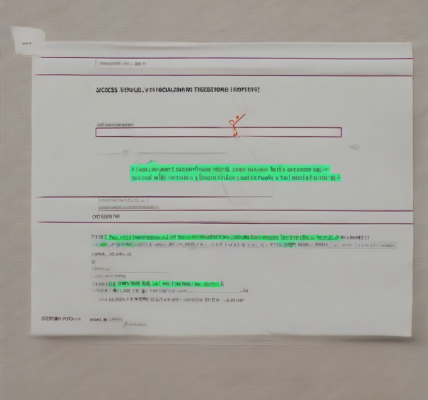Unlocking Homeownership: A Comprehensive Guide to No Credit Mortgage Loans
The dream of owning a home is a powerful one, but for many, the stringent credit score requirements of traditional mortgages seem insurmountable. Fortunately, there are options available for those with limited or no credit history. This guide delves into the world of “no credit mortgage loans,” exploring their nuances, eligibility criteria, and the potential pitfalls to be aware of.
Understanding No Credit Mortgage Loans: What They Are and Aren’t
The term “no credit mortgage loan” is somewhat misleading. While lenders don’t strictly require a lengthy, established credit history, they still assess risk. These loans are often targeted towards borrowers with little to no credit history, meaning they haven’t had many opportunities to demonstrate responsible borrowing and repayment. Instead of relying solely on credit scores (which may be nonexistent or very low), lenders will focus on other financial indicators to gauge creditworthiness.
- What they are: Loans designed for borrowers with limited or no credit history, focusing on alternative financial indicators.
- What they aren’t: Guaranteed approvals; they still involve a rigorous application process and require proof of income and ability to repay.
- What they might be called: Non-prime mortgages, subprime mortgages (though this term carries negative connotations), or mortgages for first-time homebuyers with no credit.
Factors Lenders Consider for No Credit Mortgage Approval
Since traditional credit scores aren’t the primary factor, lenders scrutinize other aspects of a borrower’s financial situation. These include:
- Income verification: Proof of consistent income through pay stubs, tax returns, or bank statements is crucial. Lenders want assurance you can afford the monthly mortgage payments.
- Employment history: A stable employment record demonstrates responsibility and financial stability. A long history with the same employer is generally viewed favorably.
- Debt-to-income ratio (DTI): This ratio compares your monthly debt payments (excluding the potential mortgage) to your gross monthly income. A lower DTI indicates greater affordability and reduces lender risk.
- Rental history: A consistent and positive rental history can serve as a proxy for creditworthiness, showcasing your ability to meet financial obligations.
- Bank statements: Regular and substantial savings, showing responsible financial management, can strengthen your application.
- Down payment: A larger down payment significantly reduces lender risk and often leads to more favorable loan terms. Expect a higher down payment requirement compared to traditional mortgages (often 20% or more).
- Co-signer: A co-signer with good credit can significantly improve your chances of approval, as they share responsibility for the loan.
- Assets: Demonstrating significant assets (beyond savings) such as stocks, bonds, or other investments can strengthen your application.
Types of No Credit Mortgage Loans
Several types of mortgages may be suitable for those with limited or no credit. The specific options available will depend on your financial situation and the lender:
- USDA loans: These government-backed loans are designed for rural homebuyers and often have more lenient credit requirements than conventional mortgages.
- FHA loans: Federal Housing Administration loans require a lower down payment and often have more flexible credit requirements than conventional loans, making them an option for those with limited credit history.
- VA loans: Available to eligible veterans and military personnel, VA loans generally require no down payment and often have less stringent credit requirements.
- Private lenders offering “no credit” mortgages: Some private lenders specialize in working with borrowers who lack extensive credit history. However, these loans often come with higher interest rates and stricter terms.
Navigating the Application Process: Tips for Success
Securing a no credit mortgage loan requires careful preparation and a strategic approach:
- Gather all necessary documentation: This includes proof of income, employment history, bank statements, tax returns, rental history, and any other financial documentation that demonstrates your ability to repay the loan.
- Shop around for lenders: Different lenders have varying requirements and loan terms. Compare offers from several lenders before making a decision.
- Consider a co-signer: If your financial situation is weak, a co-signer with good credit can significantly increase your chances of approval.
- Improve your credit score (if possible): Even small improvements to your credit score can make a difference. Pay off any outstanding debts and maintain responsible spending habits.
- Be prepared for higher interest rates: Due to the higher perceived risk, no credit mortgages typically come with higher interest rates compared to conventional loans.
- Understand the terms and conditions: Carefully review all loan documents before signing to ensure you fully understand the terms and conditions.
- Seek professional advice: Consult with a mortgage broker or financial advisor who specializes in no credit mortgages. They can guide you through the process and help you find the best loan option for your circumstances.
Potential Pitfalls and Considerations
While no credit mortgages offer a pathway to homeownership, it’s essential to be aware of potential pitfalls:
- Higher interest rates: Expect significantly higher interest rates compared to traditional mortgages due to the increased risk for lenders.
- Stricter loan terms: Loans may have stricter terms, including shorter repayment periods or higher down payment requirements.
- Limited loan amounts: The loan amount you qualify for may be lower than you’d receive with a conventional mortgage.
- Predatory lending practices: Be wary of lenders who make unrealistic promises or use high-pressure tactics. Always thoroughly research any lender before applying for a loan.
- Difficulty refinancing: Refinancing a no credit mortgage may be challenging in the future due to the initial high risk.
Building Credit After Securing a No Credit Mortgage
Successfully making your mortgage payments on time is a crucial step in building your credit history. Consistent and timely payments will positively impact your credit score over time, creating better opportunities for future financial transactions.
- On-time payments: The most significant factor in building credit is making all your mortgage payments on time.
- Maintaining a low debt-to-income ratio: Responsible management of other debts will contribute positively to your credit score.
- Monitoring your credit report: Regularly check your credit report for any errors or inaccuracies.
Conclusion (Omitted as per instructions)




